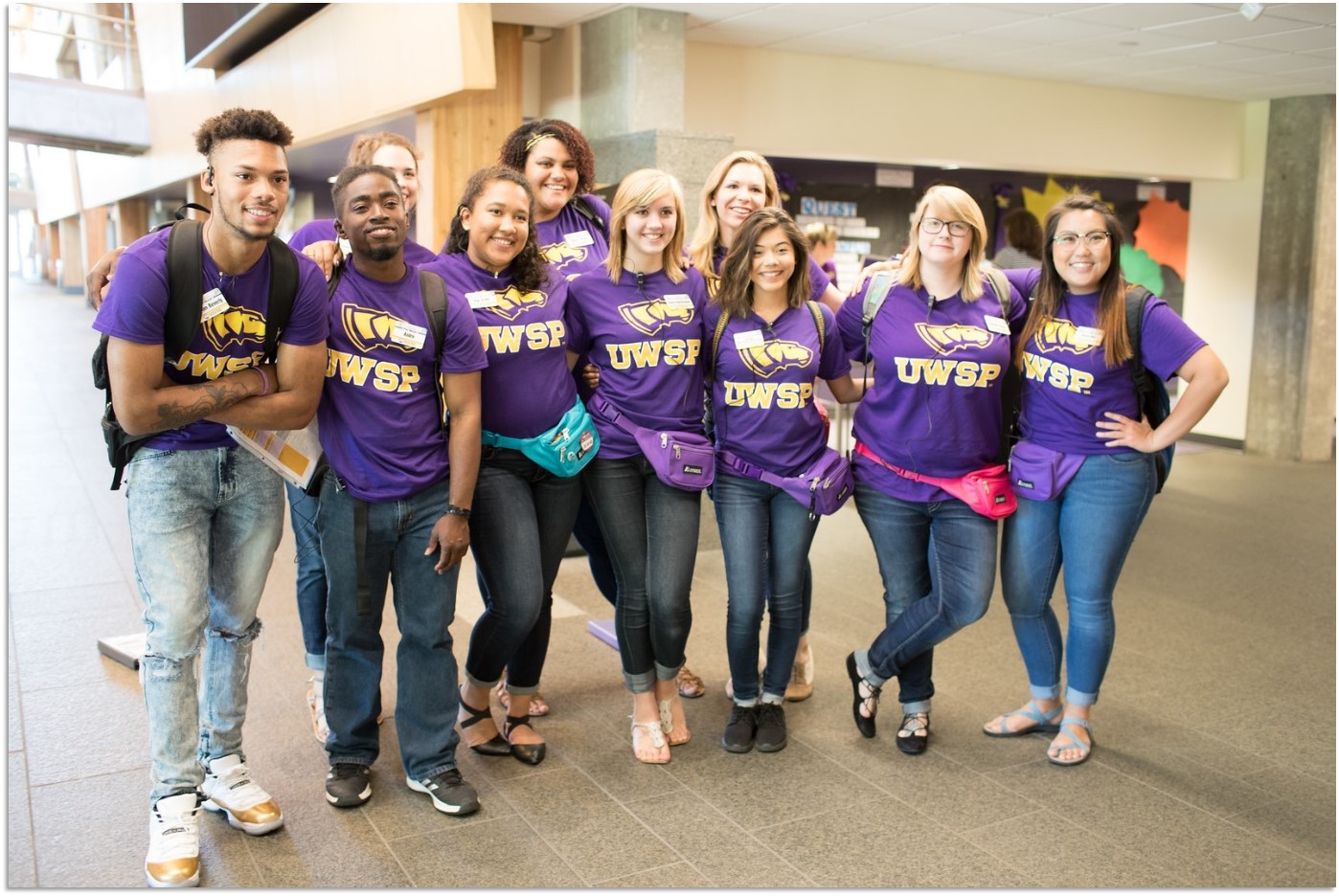Toward a More Inclusive Campus

Toward a More Inclusive Campus is a four-part training for UW-Stevens Point faculty and staff. Initially, members of each department or unit will meet for a one-hour workshop each semester. After the initial training sessions are completed, units will participate each year in an updated inclusivity training to maintain a pattern of ongoing awareness of diversity and inclusivity. Each unit, or combination thereof, will be responsible for scheduling the trainings through CITL.
Please send your request to schedule a training session via email to
CITL.
List of Completed Training Sessions by Department/Unit
Background
In mid-December 2016, UWSP students issued “A Report from Inclusivity Committee with Suggested Action Items” to Chancellor Patterson, Provost Summers, and Vice Chancellor Thompson. This 19-point list included suggestions for improving the UWSP climate through a variety of actions to be undertaken by a range of units on campus. On this list was a request that all staff and faculty complete a training on inclusivity, diversity, and inclusive pedagogy. The students also requested that this training be updated on a biennial basis. Upon the establishment of the Center for Inclusive Teaching and Learning during this same period, the new director was tasked with developing said training. This training was created based on recommendations from the Diversity Council Faculty/Staff Training Working Group, discussions with underrepresented students, perspectives shared during the 2017 Listening Sessions, and contemporary best practices in the field of educational development and inclusivity training.
Training Sessions
|
Suggested Timing for First Rotation |
Title |
Length |
Semester 1
|
Part I: Building Awareness & The Value of Diversity |
60 minutes |
Semester 2
|
Part II: Blindspots and their Consequences |
60 minutes |
Semester 3
|
Part III: Inclusive Interactions |
60 minutes |
Semester 4
|
Part IV: Inclusive Pedagogy (for instructors only) |
60 minutes |
SESSION DESCRIPTIONS
Each training session is related to the others. The four sessions are a series of interactive hour-long workshops that include an introduction of relevant research followed by discussions and activities that can be tailored to specific audiences. These can be offered for groups as small as a single department or as large as a college.
NB: In Summer 2019, the sessions were re-numbered to reflect the fact that most groups did what were previously called parts 1 (Building Awareness) and 2 (The Value of Diversity) together in a single 60-minute session. The combined “Building Awareness & The Value of Diversity” session is now part I. If you have questions about where your group is in terms of progress through the modules, please contact
CITL.
Goals and Outcomes
The purpose of this training is not to incite guilt or shame, but rather to encourage all faculty and staff at UWSP to be reflective about their power to contribute to a more inclusive and positive climate on our campus. This reflection process is based on what scholarly research can tell us about how that happens.
Goals
Upon completion of the workshops, participants will: |
Outcomes
Upon completion of the workshops, participants will be able to: |
| 1. Know the current state of diversity and inclusivity on campus and in the community at large
(Foundational Knowledge) |
A. Describe the current demographics of UWSP students, particularly as they relate to retention and achievement gaps (I)
B. Identify the challenges that students from underrepresented groups face that are related to their experiences on campus and in the community (I, II, III, IV) |
| 2. Value diversity and inclusivity
(Caring) |
C. Articulate the advantages of having a diverse student and colleague (based on scholarly research) (I)
D. Commit to making UWSP more inclusive (I,III, IV) |
| 3. Understand how their experiences shape their choices and interactions with students and their peers
(Human Dimension) |
E. Examine their biases and privileges (I, II)
F. Identify ways that the aforementioned are reflected in their course design and interactions (II, III, IV) |
| 4. Be allies to underrepresented students and colleagues
(Application) |
G. Productively confront microaggressions (III)
H. Use inclusive language (II, IV)
I. Have strategies for learning about other’s experiences (II,IV) |
| 5. Feel empowered to make change that enhances inclusivity on campus
(Integration/Application) |
J. Use principles of inclusive pedagogy to design courses, including choosing subject matter and teaching methods (IV)
K. Minimize stereotype threat and implicit bias (I, II, III) |
These goals and outcomes were created as part of the backward design process
(Wiggins and McTighe, 2005) and reflect the categories for significant learning as described in
Fink (2005). They were mapped into a curriculum, insuring that all are addressed at least once during the series of sessions that comprise the overall training.
